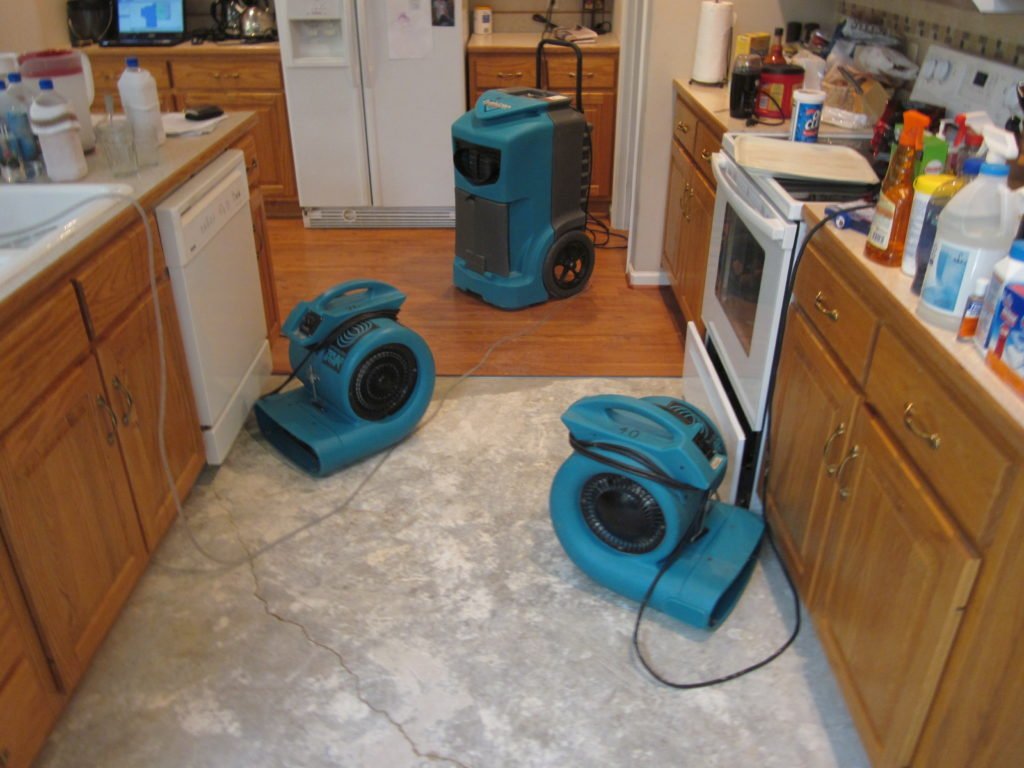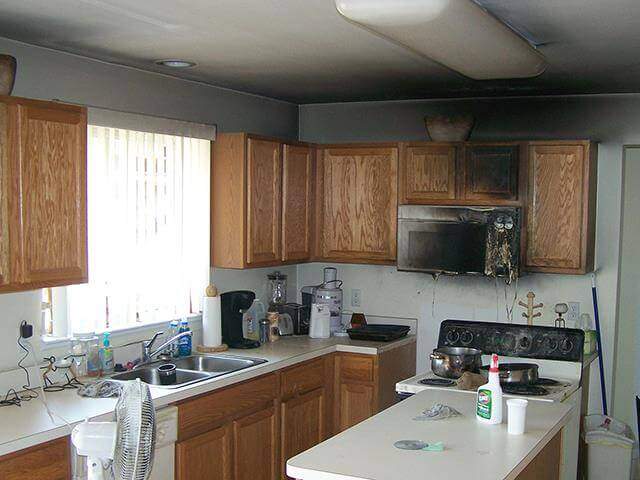Listed here below you might get more good details regarding How To Prevent Water Damage To Your Kitchen.

The kitchen area is the space where a lot of water activity goes on. You can rarely do anything without making use of water in the cooking area, from food preparation, cleaning, and doing the dishes.
Thus, examining your cooking area periodically is a need. Because it has a higher opportunity of obtaining water damage due to the home appliances you use there, this is.
When damaged, these home appliances that manage water could make your cooking area untidy and affect the framework of your building in the long run.
Allow's inspect out some causes of the water damage in the cooking area and what you need to look out for.
Some Root Causes Of Water Damages in the Cooking area
These are a couple of causes of water damage in the cooking area.
Faulty Drain Piping
Drain pipes Pipes are essential parts of our homes, especially in our bathroom and kitchens. They get faulty by obtaining obstructed, split, and ruptured. Or even worse, they can be incorrectly or freely linked; whichever the instance may be, it can be an extreme issue.
Damaged drain pipelines can cause water damage and also, as a result, create mold development and also damage the appearance of your wall. It can likewise make the affected area look unpleasant.
For that reason, it is suggested always to inspect to ensure that all the pipes remain in good condition and get an audio plumbing system to preserve and also repair any type of issues.
Faulty Kitchen Sink
The cooking area sink is an essential and many made use of part of the cooking area. Hence it is prone to water damage; damages such as obstructed pipelines, leaky pipes, as well as damaged faucets.
These problems can be irritating, particularly when one is hectic in the cooking area. Nonetheless, it doesn't just happen without providing an idea or an indicator. So below are some indicators to recognize when your sink is not okay
So, these are the major problems that can take place to your kitchen area sink. One method to stop this damages is by making sure that food particles do not get right into the pipes. You are also examining the faucets and pipelines as well as guaranteeing that it is effectively taken care of as well as in good condition.
Leaking Dishwashing machine
Dishwashing machines make life in the kitchen much easier. Nevertheless, it is an optional kitchen home appliance and, when readily available, can be a source of water damage. In addition, like various other machines, it will certainly establish mistakes in time, even with upkeep.
One of the mistakes is leaking with the door or beneath the dish washer. These faults create due to age, splits, wrong use, loose web links to pipes, etc.
Mistakes because of age originated from constant use. Consequently, the door leakages due to shutting and opening up.
Mistakes from the wrong use might cause water damage by presenting cracks to it. For this reason, it is suggested to follow the hand-operated guide of the dishwashing machine to stop this particular damage.
The leaks under the dish washer can originate from cracks in the gasket, pipe, and also loose or incorrect link to pipes or drains.
This type of leakage usually goes unnoticed as well as can be there for a very long time. Nonetheless, due to the time framework, it can create and also damage the floor mold growth.
Much more so, the longer the water remains, you will certainly observe the bending of the flooring where the dishwasher is. When examining if your dish washer leakages, this is an excellent sign to look out for. Spotting and fixing this on schedule avoids major water damage to your flooring.
Bottom Line
Watching out for damages in your kitchen area can be charging however required. It makes your work there simpler and safer.
However, the causes listed above are only a few factors to consider, especially if your cooking area has a great deal of devices.
So get an expert plumbing service ahead about as well as check for any damages and also obtain them repaired.
It makes your kitchen location untidy as well as wet, specifically when leaking from the pipelines. And if it is dripping from the tap, it leads to water waste.
It is an optional kitchen device and also, when offered, can be a source of water damage. Extra so, the longer the water remains, you will see the bending of the floor where the dish washer is. Identifying and repairing this on time stops major water damage to your floor covering.
WAYS TO PROTECT YOUR KITCHEN FROM WATER DAMAGE
The kitchen is one of the most significant rooms in your house, as it is a multipurpose room wherein you can do your cooking and cleaning. Nowadays, homeowners tend to ignore the problems under their sink or appliances because of their busy schedules. However, most household floods occur due to plumbing and appliance failure. One of the most common scenarios that cause water damage to your kitchen is when the dishwasher malfunctions and floods gallons of water.
Water damage in your kitchen can cause several problems, including cosmetic damage, mold growth, and even an unpleasant smell. Often, if you fail to neglect the problem, there are always consequences. This article will help you protect your kitchen from water damage.
Common Causes of Water damage in your kitchen
Pipe problems are the most common source of water leaks under your sink. If homeowners ignore this issue, it will burst and flood the kitchen. Dishwasher leaks can be a source of water damage in your kitchen. An old, broken, and defective dishwasher can cause leaks, damage to your floor, and even mold growth. Refrigerator leaks can cause water damage in your kitchen, as sometimes melted ice from defrosting can cause leaks. Furthermore, if your refrigerator has internal problems, it is very likely to cause water damage. Back-splash and sink caulking can cause discoloration and water damage to your countertop tiles. Ways to Protect Your Kitchen From Water Damage
Regular maintenance
The most important thing you can do to protect your kitchen from water damage is to inspect the sinks, drains, and pipes, as well as the kitchen appliances, regularly. As with the sink, check for missing or deteriorated caulk. Remove the old caulk and clean the area thoroughly and re-seal it with fresh silicone. Furthermore, sweep the drain regularly, empty the filter and dispose of the debris in the garbage, and inspect the supply lines and valve for cracks.
Check your appliances
Check the user’s manual for instruction and proper use of every water-related appliance installed in your kitchen. For the dishwasher, check this procedure to prevent the dishwasher from flooding your kitchen. Check the appliances that need water, such as the coffee maker, ice maker, and water cooler, as they can become the cause of water damage in your kitchen. You may call a professional to check and repair damaged appliances and professional restoration for water damage clean-up.
Garbage clean-up
Fats, oil, and grease are common in the kitchen. Pouring them down the drain can cause clogs and sewage backup, which may result in significant kitchen water damage. If your kitchen sink is clogged, use a solution of hot water, baking soda, and vinegar to unclog the fats and oils in the pipes. Also, make sure to throw out the debris in the trash and clean the sink properly using paper towels for greases and oil and soap or bleach solution for the sink itself.
Shut off your water line
Make sure to shut off your main water line, especially if you're away and having some flood issue. As mentioned, dishwasher leaks are one of the most common culprits of water damage in the kitchen. So, make sure to only use the dishwasher if someone is at home and available to attend in case a problem arises.
Furthermore, it is also important that every member of your household knows where the shut-off valves are located. So in case of an emergency, they can mitigate the damage by turning off the water source.
Install leak detectors
One of the best ways to catch water damage before it could even cause serious damage to your home or business is by installing a water or leak detector. A leak detector monitors the flow of water through a pipeline, can detect moisture in the air for molds, and tracks the water temperature. Also, it can shut off your water line in case of an emergency. Install leak detectors under the kitchen sink, near the dishwasher and refrigerator.
https://superiorrestore.com/7-ways-to-protect-your-kitchen-from-water-damage/

We hope you enjoyed our article about Water Damage in Kitchen. Many thanks for spending some time to read through our blog. Sharing is caring. Helping others is fun. We truly appreciate reading our article about How To Prevent Water Damage To Your Kitchen.
Services